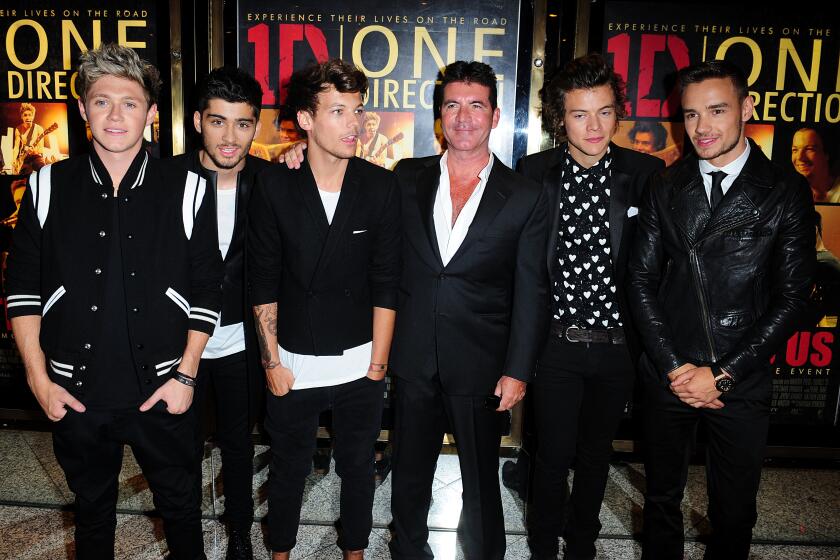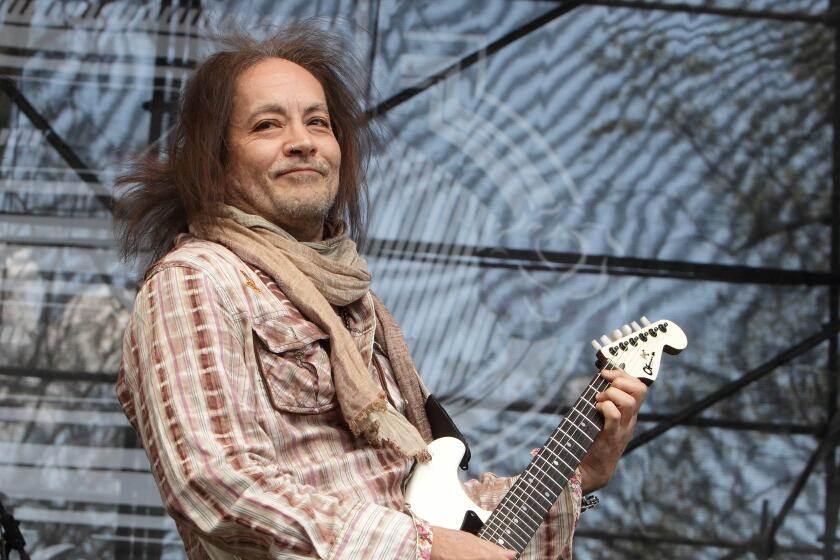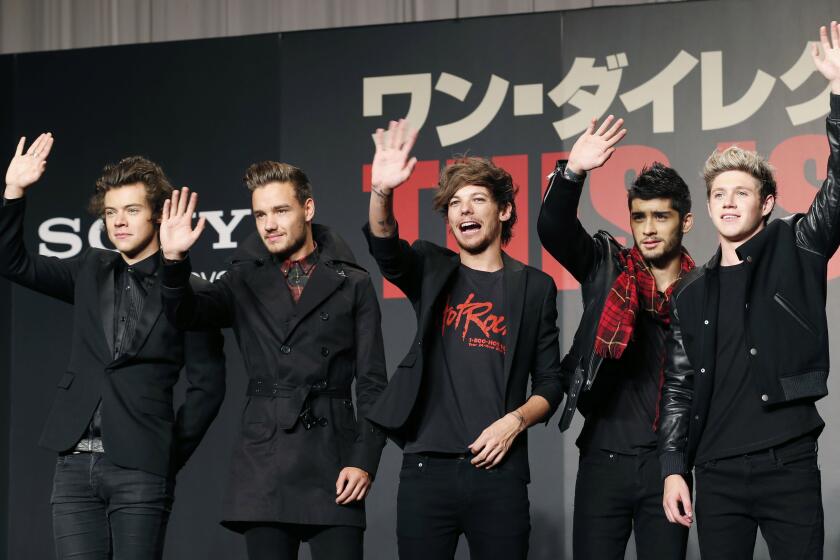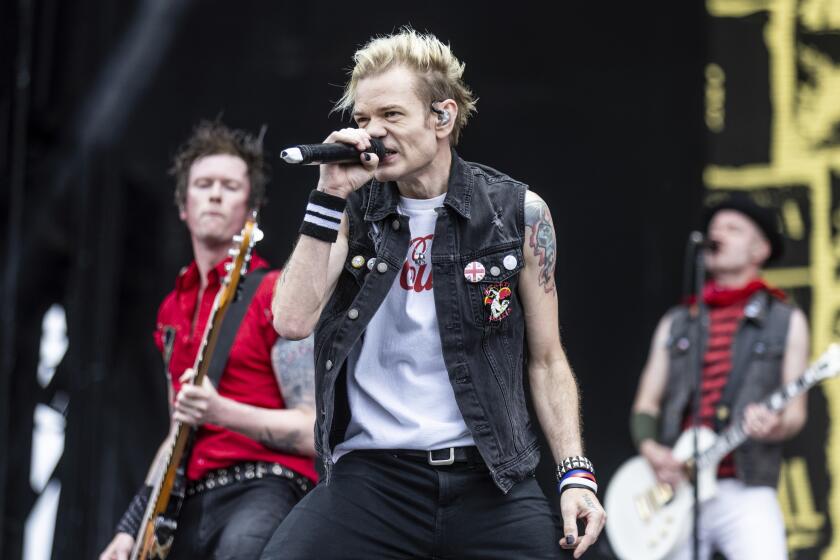POP MUSIC REVIEW : Waits Reclaims His L.A. Connection
Before X and its fellow punk bands took over the role of documenting Los Angeles’ psychic terrain, Tom Waits was the chief explorer of the city’s condition. Casting himself as a down-and-out denizen of the 24-hour streets, he blended realism and romanticism to depict a city charged with violence and fueled by dreams and hope.
In the latter half of his 20-year career, Waits has ranged far from that specific geography, but the old connections were re-established on Saturday as Waits, in a rare appearance that brought out a full house of fans, headlined a concert at the Wiltern Theatre benefiting organizations involved in rebuilding the riot-damaged city and working with gangs.
He didn’t offer any speeches or many overt musical comments on the cause, although he had quietly underscored his endorsement earlier in the evening when he strolled onto the stage during an intermission and introduced Charles Norman, a leader of the Community Youth Gang Services, who spoke briefly about the situation in South-Central Los Angeles.
But Waits’ opening pair of songs made at least a glancing connection. “Small Change”--a monologue about a street hustler’s demise, spoken over Mitchell Froom’s spooky organ curls--conjured mean streets and included the line “a hot rain on Manchester Avenue.” “Heartattack and Vine” followed, a sort of “Guys and Dolls From Hell” scenario that’s both affectionate and cautionary.
Because this wasn’t a regular concert in the career cycle, it was free of the usual concerns--how does the new stuff sound, how does it relate to the standards, where is he going? Instead, its relaxed but concentrated tone brought out much of the best of Waits’ work.
Rather than distancing himself with a theatrical persona, as he’s done in the past few years, Waits emphasized an easy informality as he sparred with over-excited song-requesters and loud whoopers in the manner of a nightclub entertainer bantering with hecklers.
In his pork-pie hat, sleeveless leather jacket and pants cuffs trailing on the floor, Waits looked like a dumpster-dwelling Ed Norton, and he’d start each song by contorting his frame like a rubber man and setting the tempo by flapping his arms like an ungainly bird.
With a four-piece band working mostly in the enticing, avant-garde blues-cabaret style of his past few albums, the musically intense set was a fairly dazzling tour through assorted Waits genres, from hipster poetry to soul-style ballads to almost conventional pop songs. It was a vivid reminder--at a time when his emphasis is more on acting and film scoring than on songwriting and recording--of his range and invention.
Waits might have refrained from overt editorializing, but second-billed Fishbone, who followed a set of traditional Mexican songs by surprise guests Los Lobos, felt no such restraint.
The African-American rockers offered militant rhetoric as they cranked up their manic soul-funk-punk-metal-pop blend, which threatened to overwhelm the intimate theater. Fishbone, which usually plays to swarming crowds in open-floor ballrooms, actually benefited musically from the confinement, sounding more focused and less chaotic than usual.
The ultimate statement on the evening’s theme came not with anyone’s words, but with the gradually expanding roster of sidemen that took the stage during the final encore, Waits’ “Temptation.” With members of Fishbone and Los Lobos coalescing around the slinky rhythm, the stage was filled with a tableau of white, black and Latino musicians with a common heritage in the diversity and vitality of Los Angeles’ culture.
It would be a mistake to regard this image of harmony and solidarity as an easy solution to a dauntingly complex problem, but it would also be pretty cynical to dismiss it as a meaningless gesture. It cast the kind of light that can guide and inspire, and you can’t ask much more of music than that.
More to Read
The biggest entertainment stories
Get our big stories about Hollywood, film, television, music, arts, culture and more right in your inbox as soon as they publish.
You may occasionally receive promotional content from the Los Angeles Times.










